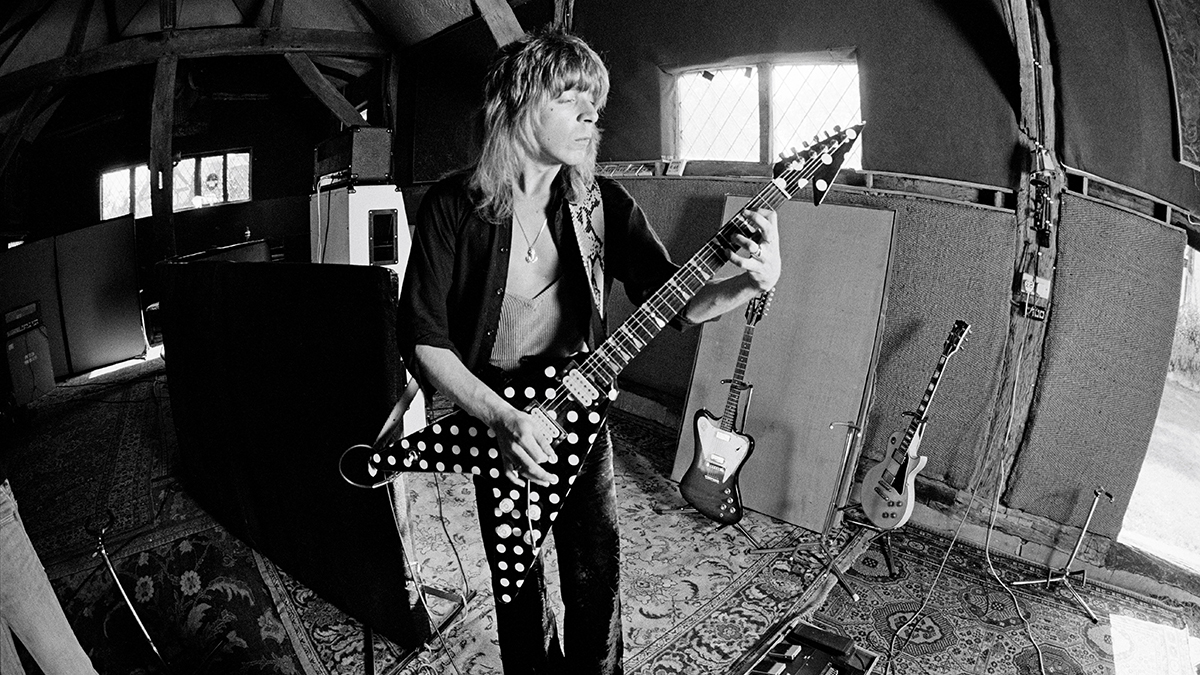
Growing up – and standing side by side on stage – with Randy Rhoads taught bass guitar player Kelly Garni a thing or two about the guitar player, who would later help define the sound of Ozzy Osbourne’s solo era and become a legend in his own right.
“He was a guy I noticed in high school. I thought he was very interesting, and I wanted to get to know him, ” Garni tells Guitar World in a new interview. “We were in a new school, and we were sort of outcasts, so we gravitated together. And I went to his house, he told me he played guitar, and I had a slight interest in that.
“He didn’t know how to play lead, but I thought he was pretty good. He was taking lessons from Scott Shelly at his mother’s music school. From there, it turned into him needing a bass player, so he turned me into a bass player.”
The pair would eventually found Quiet Riot in 1973 – hiring Drew Forsyth as their drummer and Kevin DuBrow, originally a photographer, as their lead vocalist – and hustled their way through L.A.’s bustling music scene. Rhoads would continue improving his craft despite the more typically bass-leaning equipment available to him at the time: a Peavey Standard head and an Ampeg 4x12 cabinet.
“Most people looked at Randy’s equipment back then and said, ‘How in the world did that guy get that sound out of that?’” Garni recalls. “But it didn’t come out of the amps; it literally came out of his fingers. It’s a strange thing… I have seen other guitar players do that to the extent that Randy did. The tone really was in his fingertips.”
As the bassist aptly puts it, “This wasn’t a guy who got better every six months, or every month, or every week; this was a guy who got better every 60 seconds.”
Disillusioned with Quiet Riot’s inability to land a record deal in the States, Rhoads ended up answering the call to audition for Ozzy in September 1979 – coincidentally, right before his final show with the band he started with Garni. Despite his obvious talent, Jet Records’ founder, David Arden, thought he was too young to join the Ozzy circus. He eventually relented – and the rest, as they say, is history.
Guitar World's full interview with Kelly Garni will be published in the coming weeks.







